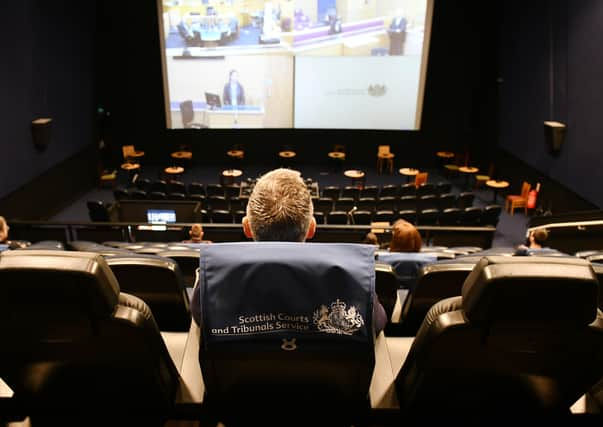Special powers for pandemic may shape Scottish justice system of the future


Some of the changes brought in are considered to be long overdue and will result in more efficient and effective ways of working in the longer term, the study found.
The joint report by HM Inspectorate of Constabulary in Scotland and HM Inspectorate of Prosecution in Scotland evaluated the use and impact of the key emergency criminal justice provisions, introduced by the Coronavirus (Scotland) Act 2020. Inspectors found support for continuing the use of electronic signatures and the electronic transmission of documents.
Advertisement
Hide AdAdvertisement
Hide AdHowever views on the future of remote, electronic court appearances which have been used during the pandemic are mixed, with issues around solicitor consultation, the ability of the accused to participate effectively in proceedings, and the quality of video links.
Gill Imery, HM Chief Inspector of Constabulary, said: “Many of the innovations are ones which have long been contemplated but had not yet come to fruition for various reasons. In some instances, the pandemic has been a catalyst and in others an accelerator. Lessons learned from the past few months may help shape the future of criminal justice.”
The report focused on electronic signature and electronic transmission of documents, remote attendance at court, the ability to take a case in any sheriff court, and the revised Lord Advocate’s guidelines on liberation by the police during Covid-19.
It found virtual custody courts have been used to varying extents in different areas, with more than 1,000 accused people appearing via digital means, and while such appearances have proved useful during the pandemic, a number of issues would need to be addressed.
The report said some summary trials and hearings were straightforward enough for the virtual environment, but there was a degree of scepticism about a significant roll-out.
It suggested that for summary trials, a hybrid model with some of the trial taking place in person and some witnesses appearing virtually should be given serious consideration.
There has been minimal take-up of the facility for those making a first appearance from custody to be dealt with in any sheriff court in Scotland, rather than the one closest to where the offence took place.
The inspectors also reviewed the impact of the revised Lord Advocate’s guidelines on release from police custody, which reiterated existing provisions based on the presumption of liberty and provided additional direction to police on the kind of situations where refusing to release an accused person may be justified.
Advertisement
Hide AdAdvertisement
Hide AdThe report found the guidelines had a considerable impact on the number of people detained in custody and held for court and had prompted cultural change within Police Scotland.
Laura Paton, HM Chief Inspector of Prosecution, said: “While many innovations have been vital to the continued function of the criminal justice system and may be of benefit in the longer term, their swift introduction without the usual consultation or equality and human rights impact assessments risks them not gaining the support required or the fairness of proceedings being questioned.”
A Crown Office and Procurator Fiscal Service (COPFS) spokesman said: “COPFS welcomes this report. We are pleased that the joint inspection has found that the emergency criminal justice provisions have generally been used to good effect.
“The suggestions made in the report about retaining these provisions will be considered carefully.”
Comments
Want to join the conversation? Please or to comment on this article.